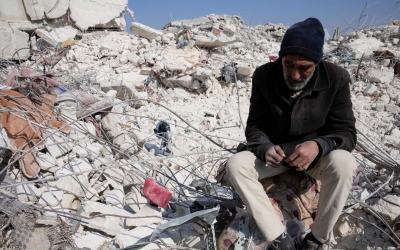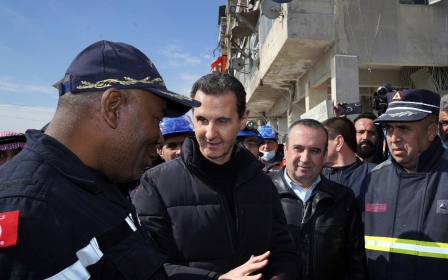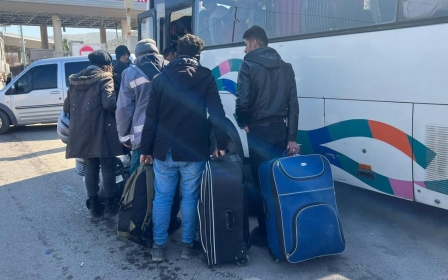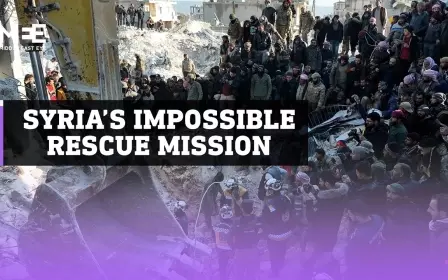Syrian forces shell quake-hit areas in northwest region
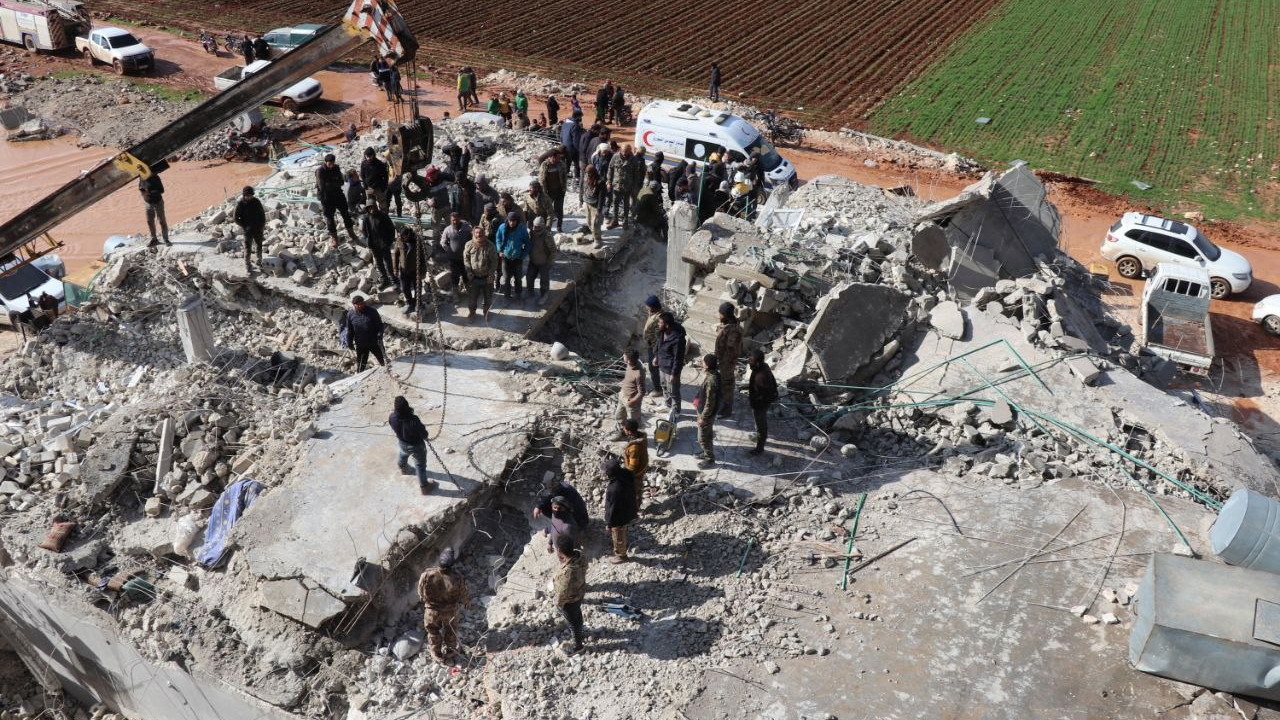
Syrian government forces and rebels clashed in the quake-hit northwestern region overnight in their first confrontation since a devastating earthquake hit Turkey and Syria on 6 February, the Syrian Observatory for Human Rights reported on Friday.
Abou Mostafe al-Khatabie, a war monitor based in northwest Syria, told Middle East Eye that shelling from Base 46, which hosts a pro-Assad force, targeted western Aleppo.
The London-based Observatory said shelling hit Atareb city and Kafr Amma village in western Aleppo countryside, while clashes also took place in Kafr Taal and Kafr Nouran villages. No casualties were reported.
"The clashes in western Aleppeo were light, they were part of regular shelling," Ali al-Dalaty, an activist based in Idlib, told MEE.
The opposition-held northwest region in Syria was one of the areas most affected by last week’s earthquake.
New MEE newsletter: Jerusalem Dispatch
Sign up to get the latest insights and analysis on Israel-Palestine, alongside Turkey Unpacked and other MEE newsletters
A total of 235 people in Atareb and nearby areas were killed in the disaster, Observatory director Rami Abdulrahman said.
At least 2,274 people died in opposition-held areas overall, according to the Syrian Civil Defence rescue group, which operates in rebel-held areas. The UN says the death toll could be as high as 4,400.
In government-controlled areas, at least 1,414 people were killed.
Shelling was also reported in the vicinity of al-Ankawy and al-Sarmaniyah villages in the Hama countryside on Friday, the Observatory said.
An MEE contributor based in northern Aleppo said the shelling on Kafar Taal occurred around 23:30 local time, with at least 20 artillery shells and intermittent heavy machine gun fire heard.
Yaseen Algomaa, an activist based western Aleppo, said the attack came shortly after another aftershock was felt in the region.
Last week, Syrian President Bashar al-Assad's forces struck Marea, a town in northwestern Syria, hours after the earthquake on the morning of 6 February.
Al-Khatabie said areas in southern Idlib had also come under government attacks earlier this week.
'Crisis within a crisis'
The humanitarian crisis in northwestern Syria that has been caused by 12 years of war was exacerbated by the earthquake.
The devastation caused by the quake has been compounded by a lack of good infrastructure or relevant expertise in the region.
There are no reliable statistics on how many have died in the aftermath while trying to survive in sub-zero temperatures with no deliveries of aid.
Before the earthquake, Idlib was home to some four million people, 2.8 million of whom had been displaced by the war. President Assad and senior security officials are under western sanctions for their involvement in the deaths of around 350,000 people since 2011, according to human rights groups.
Now, according to Kelly Clements, deputy high commissioner of the UN Refugee Agency, the number of displaced in the northwest sits at 5.3m.
“For Syria, this is a crisis within a crisis,” Sivanka Dhanapala, Syria representative of the UN High Commissioner for Refugees, said last week. “We’ve had economic shocks, Covid, and are now in the depths of winter, with blizzards raging in the affected areas.”
Initial estimates say over 2,276 buildings have collapsed, though it is difficult to measure whether damage to some buildings had been caused by the earthquakes or previous shelling by the Syrian government and Russian forces.
The Response Coordinators Group, a local Syrian NGO based in Turkey and Syria, said in a statement that 45 percent of the infrastructure in the northwest had been damaged.
Additional reporting by Harun al-Aswad
Middle East Eye delivers independent and unrivalled coverage and analysis of the Middle East, North Africa and beyond. To learn more about republishing this content and the associated fees, please fill out this form. More about MEE can be found here.


